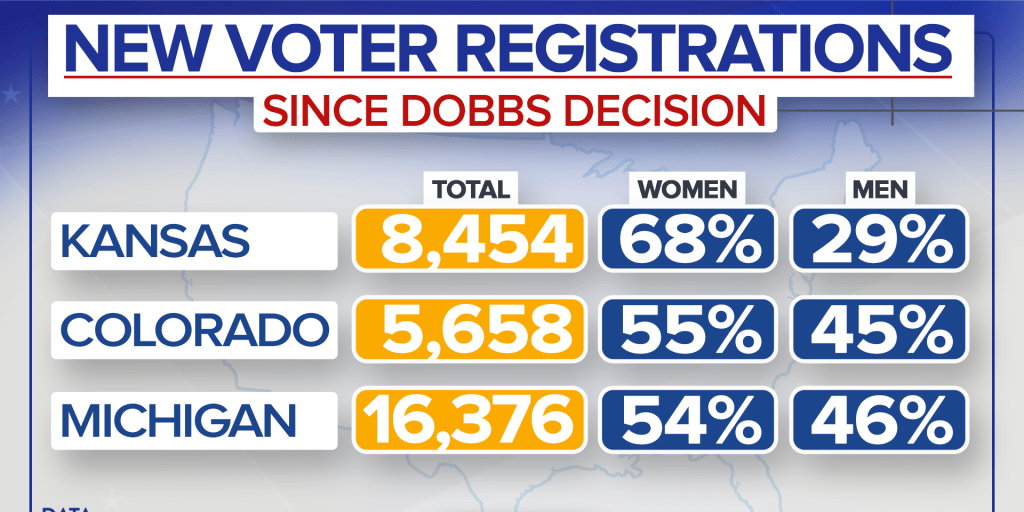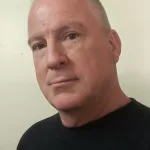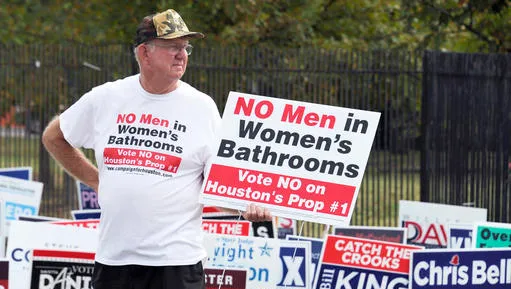With controversial decisions by the Kansas Supreme Court drawing increasing scrutiny in recent years and this week’s naming of three nominees for the Governor’s upcoming appointment to fill a vacancy on the state’s high court, the political affiliations of those recently named nominees proves to have been anything but consistent over most of the past two decades of their voting histories.
The nominees were selected by the state’s judicial nominating committee, which is supposed to function outside of any political influence other than the fact the governor appoints some of its members and others are elected by attorneys. As of this week, District Court Judge Amy Hanley of Lawrence and private practice Leawood attorney Larkin Walsh are both Republicans, according to the Kansas Secretary of State’s office, and District Judge K Christopher Jayaram of Lenexa is Unaffiliated. But what they are now is not what they always were.
Those switches by the nominees between Republican, Democrat and Unaffiliated allegiances as they pursued their legal and judicial careers are even more in the spotlight for this particular KSSC appointment, since Kansas Legislators will submit a constitutional amendment question to voters in August 2026 that, if approved, will initiate the election of future justices as opposed to the current method of gubernatorial appointment.
A deep dive into Kansas voter registration records since 2008 (courtesy of our friend Earl Glynn at Watchdog Lab) shows the particular eras in Kansas and U.S. politics when the nominees were Democrats, Republicans or Unaffiliated – and shows over the course of time that one nominee was all three.

A quick look back through history reminds us of the Kansas gubernatorial eras and their corresponding U.S. presidential terms. Governor Kathleen Sebelius, a Democrat, took office in January 2003 and served through April of 2009 when she was tapped as President Barack Obama’s Secretary of Health and Human services. Her Lieutenant Governor Mark Parkinson, himself a former Republican, then took the office and chose not to run in 2010 when Sam Brownback was elected. Brownback was elected to two terms, serving from 2011 To 2018 when he resigned to take a post in the Trump Administration as Ambassador At Large for International Religious Freedom. Brownback’s lieutenant governor Dr. Jeff Colyer served the remainder of the term then lost a Republican primary battle to Chris Kobach, who in turn lost the governor’s race to Laura Kelly in 2018. Kelly finishes her second term 2026.
During those terms in Kansas, George W. Bush finished his second term in 2008 when Barack Obama was elected to a first then a second term, yielding the office to Republican Donald Trump in 2016. Joe Biden beat Trump’s re-election bid in 2020, and Trump won the office back in 2024. During that time the country journeyed through divers periods including the War on Terror and the Iraq/Afghanistan Wars to a mortgage-based economic crash in 2008; the election of the nation’s first Black president and a subsequent a turn of national policy toward the Left and expanded government; then Trump’s brick wall of pro-business, hyper critical controversy and false allegations of corruption; Covid; Joe Biden’s massive debt-jacking federal spending spree and more Leftist priority on race, diversity and faux gender; then back to conservative ideology with a new Trump era.
Amend that tumbling State and National political seascape Judge Jayaram was most politically consistent in his voter registration, with voter data spot checks beginning in 2008 showing him registered as a Democrat from July 2008 to February 2016, when he first turns up in Glynn’s spot check as Unaffilated. He switched back to Democrat at some point in 2022, then switched back to Unaffilated in early 2024.
Judge Hanley took a broader political journey, apparently ending in a 2016 epiphany that left her in the Republican camp ever since. Hanley was a Democrat from at least 2008 through mid-year 2011, when she went Unaffillated, the became a Republican in 2016 and stayed that course to present day.

Walsh, the only nominee not presently holding a seat on a local court bench, took a wilder ride during the Obama/Brownback years. Walsh was a Democrat in 2008, switched to Republican by fall of 2012, then to Unaffiliated toward the end of that year, then back to Republican by the summer of 2016, dropped back to Unaffilated in 2018, then came back to the Republican herd by the fall of 2020 and has stayed put since.
Along with the broader eras of presidential and gubernatorial control, a number of primary and general election races in state offices and Kansas Legislature posts took place over the term Glynn sampled.
While judges typically claim a non-partisan approach to legal decisions, the Kansas High Court has been scrutinized in recent years for its liberal bent, particularly in the area of abortion. A year ago the justices permanently blocked a law banning the most common second-trimester abortion procedure (dilation and evacuation), citing their own 2019 declaration that the Kansas Constitution includes an innate civil right to abortion. Justice Caleb Stegall dissented, arguing the original constitution did not include this right.
Additionally, in 2024, the court declared unconstitutional a set of abortion clinic regulations enacted in 2011 and 2015. The majority opinion held that the state failed to demonstrate that the regulations advanced a “compelling state interest,” such as maternal health, and thus did not survive strict court scrutiny. Conservatives have asserted the lives of the unborn are “compelling” state interests.
Also last year, justices led by Stegall declared no fundamental right to vote exists in the Kansas Constitution, although a “political” right does. But the court sided with the supporters of another portion of a state law that makes it a crime for someone imperosnate an election official. Left-leaning organizations like the Kansas League of Women Voters and the nonprofit Loud Light, according to an Associated Press story, said such a prohibition suppresses free speech and their ability to register voters, as some might wrongly assume volunteers are election workers thus putting them at risk of criminal prosecution.
One of Kelly’s nominees will replace Justice Evelyn Wilson, appointed in 2019, who is retiring due to health reasons.
Dane Hicks is a graduate of the University of Missouri School of Journalism and the United States Marine Corps Officer Candidate School at Quantico, VA. He is the author of novels "The Skinning Tree" and "A Whisper For Help." As publisher of the Anderson County Review in Garnett, KS., he is a recipient of the Kansas Press Association's Boyd Community Service Award as well as more than 60 awards for excellence in news, editorial and photography.





